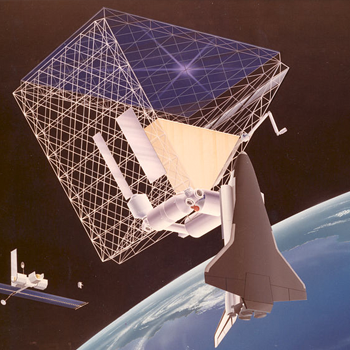In harmonic oscillator transition from ground state to second excited state is forbidden, why?
1 Answer
The transition probability for the transition is zero.
the transition is only possible between states differing by unit change in the n value.
Explanation:
the harmonic oscillator
wave function
where x = y sqrt ( m.w /2h )
, C(n) is a normalization constant, and
Hn(x) are the Hermite Polynomials.
P(n m) , the probability
for a transition between the states n and m, is given by
naturally the integral will involve
integral of
where x goes from -infinity to + infinity.
after calculation it is observed that the integral goes to zero
unless m= n +1 or n-1.
therefore the transition is possible only if m-n = + - 1.

